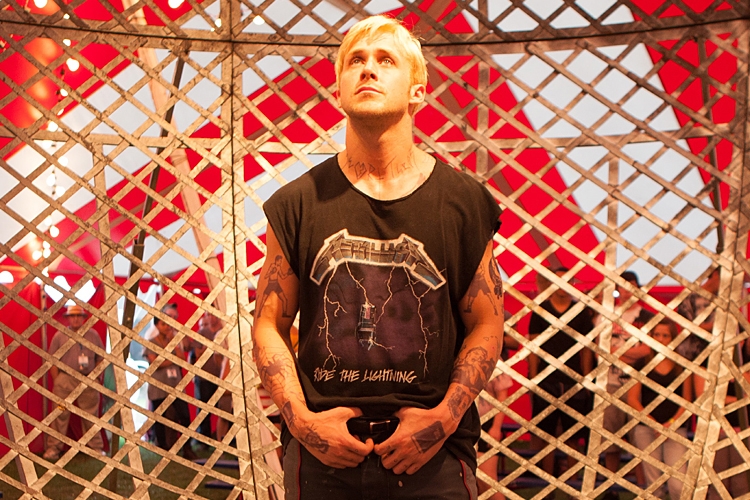Ryan Gosling, still handsome.
The Place Beyond the Pines, Derek Cianfrance’s three-part crime drama, looks like your average Ryan Gosling thriller. It comes complete with the brooding star smoking for the first 10 minutes of the film, and a strong female supporting role. However, it is a film that is rare in its genre. Though far from perfect, the film manages to use both suspense and violence to create a far deeper meaning than can be understood from the usual crime drama.
Violence holds an important place in western narrative, driving stories from the ancient Sumerians and Greeks right through to 19th century Germany, where the Brothers Grimm wrote surprisingly gruesome folk tales for children. The violence in all these stories had a purpose: to display the power of gods or to warn children against harmful strangers. Modern storytelling, however, has become riddled with explosions and gunshots that are void of meaning, and are simply there for spectacle.
The Dark Knight Rises, last summer’s biggest blockbuster, fell into a trap that most Hollywood films succumb to, one that prevents them from being as thought-provoking and substantial as they might try to be. The overuse of meaningless violence in the film only served the purpose of advancing the plot without commenting on the violence itself. The Dark Knight Rises is a typical superhero film, with obvious attempts to be more, adding empty, arguably manipulative emotion to the anarchy of Gotham City.
It’s no surprise that the box office is saturated with these types of films — they gross the highest out of any other genre after comedies.
“You can’t just be violent for violence’s sake.”
There is of course a time and a place for these types of films, but does anyone ever wonder why they are so rarely considered “great” films?
In The Place Beyond the Pines, a cycle of crime and violence is the centre of the plot, and the repercussions drive the narrative forward, creating what has been hailed by The Observer as an “engrossing, extremely well designed and acted film”. Each violent act has a direct emotional outcome. This creates a more thought-provoking and emotional film which makes the viewer think more about the action on screen.
Nicolas Winding Refn, director of Drive and the upcoming film Only God Forgives, commented “…Violence only works if there’s a consequence. There’s a build-up. You can’t just be violent for violence’s sake, because it’s not emotionally engaging, so it becomes bad pornography.” The hope, of course, is that the films being exhibited in theatres are indeed great films. Gratuitous violence can often conflict with emotion and empathy, which is at the heart of great storytelling, and is what makes for great films.
Marilena Pearson
Contributer



